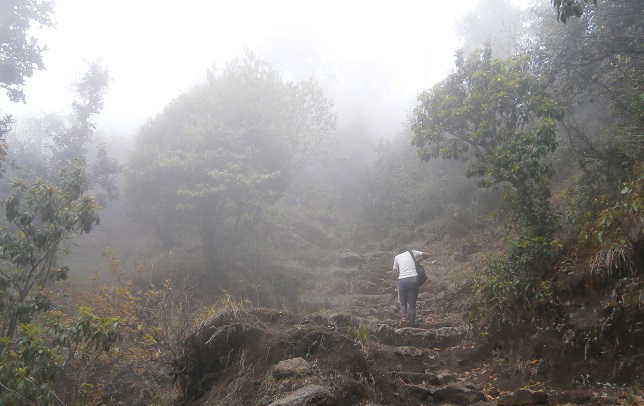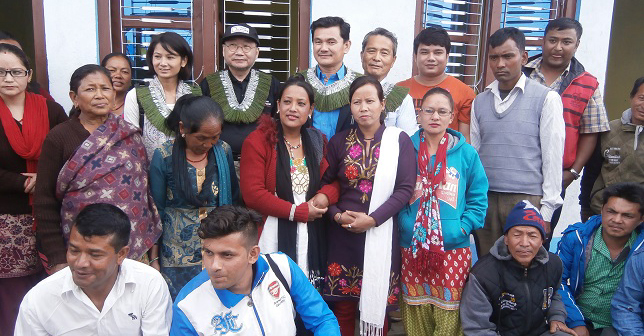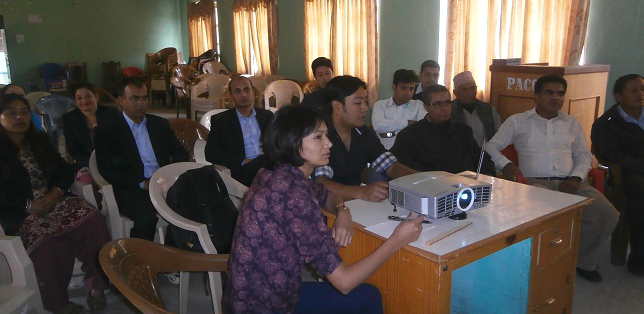Nepal: Second phase assistance activities to earthquake-affected people successfully completed
2017.2.8 Wed 15:28
The earthquake that occurred in Nepal on 25th April 2015 victimized nearly 9,000 people and injured another 22,000. The number of damaged houses reached one million. Following the first phase support activities which started immediately after the earthquake on 18th June 2015 until 25th December 2015, BHN started the second phase support for FM radio stations on 18th February 2016 and successfully completed the support activities on 24th May 2016 as planned.
Assistance to FM Radio Stations on Remote and Mountainous Areas
In the second phase, BHN provided broadcasting equipment and rebuilt hut for eight FM radio relay stations in five districts around the epicenter.
Out of these eight stations, six stations outside Kathmandu were those which had been excluded from target areas in the first phase because of the difficulty to access the sites: they were located in remote mountainous areas, thus prone to road closure and highly risky to landslides in rainy seasons.
Kairan FM station is located in a highland region at 2800m above sea level so that the local government’s support could not reach this area. For this FM station, we set up UPS batteries upon their request. Since the site is in a remote area, it took us more than ten hours to arrive. After setting up the UPS, the Kairan FM station chief told us happily that they can respond to local people’s consultation requests, which are increasing in number after the earthquake, since the batteries enable them to continue broadcasting even during power outage, which sometime lasts as many as 14 hours a day.

In the Palung FM station three hours from Kathmandu, we supported the rebuilding of the collapsed station hut. This station hut was on the summit of a mountain 2750m high and it took us about 30 minutes to climb up a steep and rocky road from the foot of the mountain, so manpower was the only way to carry the materials. In the opening ceremony held on 22nd May, not only the FM station staff, but also local parliamentarians, local government managers and local residents attended. This reminded us that the role of the FM station to the area was very significant.
<2nd phase support activities>
|
District |
FM Radio Station |
Equipment |
Relay Station Reconstruction |
|
Ramechhap |
Kairan |
X |
|
|
Likhu |
X |
||
|
Hazurko |
X |
||
|
Nuwakot |
Nuwakot |
X |
|
|
Makuwanpur |
Palung |
X |
|
|
Lamjung |
Marsyangdi |
X |
|
|
Kathmandu |
Newa |
X |
|
|
Mero |
X |
Support for introducing new services
BHN introduced the case of a Day Care Center in the city of Patan to the members of the FM stations as an example of possible future local service (Table 2). The Day Care center was established with the cooperation of professors of Japanese universities and it is voluntarily run by the local women’s association in Patan City. Palung and Sindhu FM stations showed strong interests in the introduction of a similar Day Care Center in order to enhance the role of the FM station as a community center, and local municipalities also expressed their intention to support the FM stations. They are more positive than expected and we are planning to consider ways for supporting them in the future.
|
FM Station name |
FM station’s comment |
Municipality’s comment |
|
Palung |
willing to introduce |
ready to help introduce |
|
Sindhu |
willing to introduce |
ready to form a committee |
|
Newa |
interested |
(no chance to ask for comments) |
Support needs to continue
Although the FM stations operated by NGOs in Nepal are financially in a tough situation already, this earthquake made the situation more difficult. Even now after more than one year, some FM stations damaged by the earthquake do not have the prospects of getting repaired yet. For example, at the Hazurko FM station, the staff has continued broadcasting from the station house that has been cracked even though they knew it is dangerous. As another example, the Newa FM station installed a temporary antenna and has been using it since, because they cannot repair the damaged antenna due to lack of budget. These cases clearly indicate they need continued assistance.


